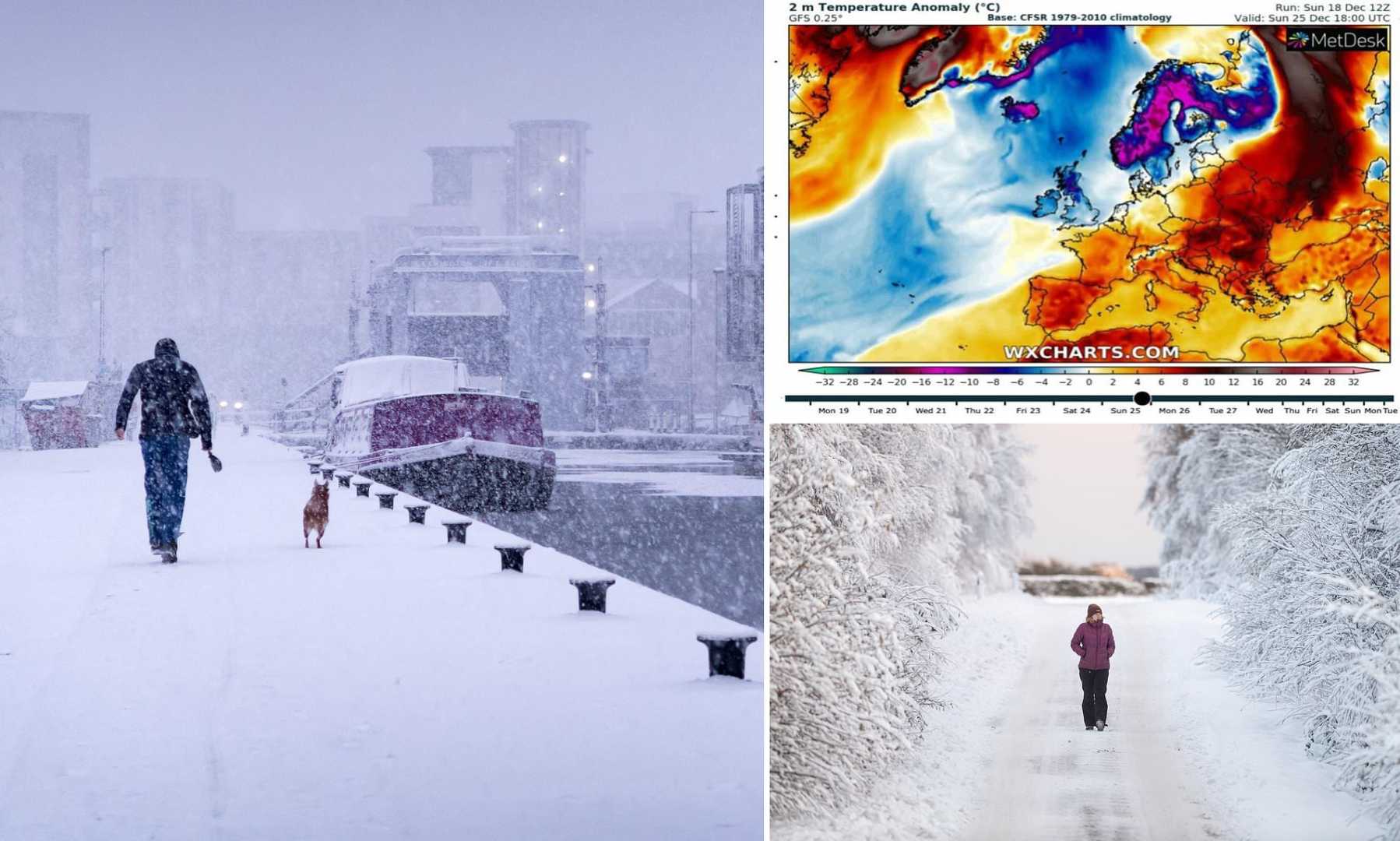News
Arctic Blast Set to Bring Winter Temperatures to the UK

Britain is bracing for a significant drop in temperatures as an Arctic blast is forecasted to hit the country, bringing conditions close to freezing.
Following a warm spell with temperatures reaching 27C at the end of August, the mercury could fall to as low as 1C in some regions beginning next week. The latest weather maps from WXCharts indicate a dramatic temperature decrease of up to 26C within a week.
Scotland and Northern Ireland are predicted to experience the most extreme lows, with forecasters expecting temperatures to plunge to around 1C by Thursday, September 12. Similarly, areas in England, such as Manchester, are also projected to see lows of 1C, while Wales may experience temperatures around 3C.
In southern parts of the UK, London and Norwich could see temperatures drop to between 5C and 6C, marking a significant 20C decrease from the 27C recorded on September 6.
Other regions, such as Newcastle, might not face as severe a drop, with temperatures expected to maintain around 12C. Predictions from WXCharts highlight a contrast between the coming weekend’s weather patterns, with northern areas enjoying warm conditions while the south anticipates heavy and potentially thundery rainfall.
This variability in weather comes after a week of mixed conditions, including periods of humidity in southern England and Wales, accompanied by early to mid-20C highs. Severe weather culminated in heavy rainstorms on Thursday, causing significant localized flooding.
Matthew Lehnert, Chief Meteorologist at the Met Office, noted that the recent rainfall patterns have prompted the issuance of a yellow weather warning across southern Britain. He described the situation as conducive to repeated areas of rain, likely resulting in local impacts as the weekend approaches.
In contrast, northern regions are expected to benefit from higher pressure systems, offering warmer and sunnier conditions, particularly across parts of western Scotland. However, eastern Scotland is likely to remain cooler and cloudier due to winds from the North Sea.












